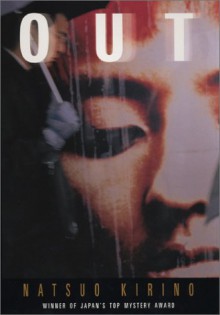OUT was awarded the Grand Prix of the Mystery Writers of Japan in 1997-the Asian equivalent of an Edgar. It is a dynamic example of the work of a new breed of Asian women writers excelling in the smart, hard-nosed, well-written, and realistically plotted mystery novel. Kirino' crime story can...
show more
OUT was awarded the Grand Prix of the Mystery Writers of Japan in 1997-the Asian equivalent of an Edgar. It is a dynamic example of the work of a new breed of Asian women writers excelling in the smart, hard-nosed, well-written, and realistically plotted mystery novel. Kirino' crime story can stand comparison with the work of other top-notch Western women writers in this genre, like Sarah Paretsky and Ruth Rendell. The story-though a bare summary makes it seem merely brutal and bloodthirsty, when it is much more than that-focuses on four women who work together in a lunch-box factory in the suburbs of Tokyo. One of them suffers from spouse abuse and, unable to take it any longer, murders her husband and appeals to her co-workers to help her dispose of the corpse. One of these friends---the brain behind the coverup-after cutting up the body in the bathroom of her house, has the other two dump it as garbage. The money from the man's life insurance is then divided among them. But this is only the beginning. The successful, unpremeditated crime and the rewards it brings are the seed of other, premeditated schemes, escalating from one localized use of violence to a rash of similar deeds, with unpredictable outcomes for the women behind them. As a study in the psychology of domestic repression and the dynamics of violent crime, OUT works on several levels, gripping the reader from its smoldering beginning to the fireburst of its finale. In hardcover in its original language it sold over 300,000 copies, and a movie version will have its premiere in Tokyo at the end of 2002, with international distribution under discussion.
show less

